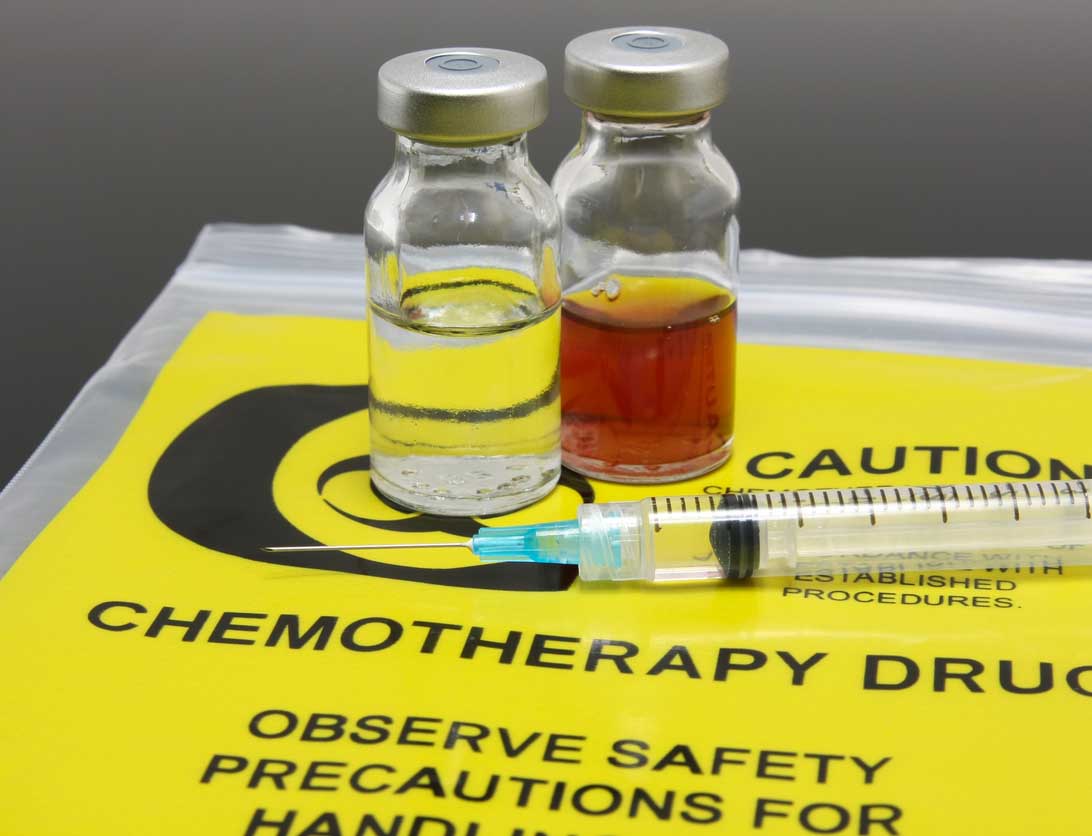Duke Study Challenges Mesothelioma Chemotherapy Practices

Neoadjuvant chemotherapy — often used before aggressive surgery — has shown no definitive survival benefit for patients with pleural mesothelioma cancer, according to a recent study at the Duke University Medical Center.
The study strengthened the growing belief among mesothelioma specialists that the combination of chemotherapy drugs cisplatin and pemetrexed might be a more effective treatment after surgery than before.
“I think the study provides a little more evidence to support what those of us were seeing, that neoadjuvant chemotherapy isn’t the positive treatment regimen that we had initially hoped it was,” Dr. David Harpole, renowned thoracic surgeon at the Duke University Cancer Center, told The Mesothelioma Center at Asbestos.com. “I think this may change some thinking in the medical oncology community.”
Duke’s study was published in February by the Journal of the National Cancer Institute. Dr. Soraya L. Voigt was lead author. Dr. Vignesh Raman was among the co-authors with Harpole.
“We wanted to know, do patients really benefit from this [regimen]?” Voigt said. “Did it really increase survival? We found, based on our review, giving neoadjuvant chemotherapy does not improve overall survival.”
Study Finds No Survival Benefits of Chemotherapy Before Surgery
The theory behind neoadjuvant chemotherapy, which first became popular for mesothelioma more than a dozen years ago, was that it may reduce tumor burden, make surgery more effective and potentially make more patients eligible for surgery.
Duke’s retrospective study compared its effectiveness with those having immediate resection without waiting for chemotherapy treatment. The study included two cohorts, 257 patients at Duke (1995-2017), and 1,949 patients from the National Cancer Database (2004-2015), who fit inclusion criteria.
The study found similar overall survival rates in both cohorts, but an increased risk in post-resection mortality for those undergoing neoadjuvant chemotherapy.
In a propensity matched cohort of 269 patient pairs from the National Cancer Database, median post-resection survival was 19 months for those doing immediate resection, but only 16 months for those first undergoing chemotherapy.
There were no statistically significant differences in median, post-resection survival between the two groups in the propensity matching Duke cohort involving 60 pairs of patients.
In both cohorts, there was an increased risk of post-resection mortality in the neoadjuvant chemotherapy group, but not an increase in overall mortality.
“The data isn’t strong enough to say it [neoadjuvant chemotherapy] shouldn’t be done anymore,” Harpole said. “There still is a role for it for selected patients, and especially for those on clinical trials investigating chemotherapy with immunotherapy before resection.”
A combination of cisplatin and pemetrexed also is being used with surgical patients after surgery at some centers.
Neoadjuvant Chemotherapy Still a Debatable Topic
According to the study at Duke, the oncologic value of neoadjuvant chemotherapy is one of the most debated management strategies in mesothelioma treatment.
The National Cancer Care Network does not offer consensus guidelines either way on its use for mesothelioma surgical candidates.
Recommendations for the use of this chemotherapy combination stem from earlier studies that demonstrated increased survival rates for patients using it who were not surgical candidates.
There have been no prospective clinical trials comparing the use of neoadjuvant chemotherapy with immediate resection. According to the authors, this was the largest retrospective analysis comparing outcomes of these two groups of patients.
Study Finds Lack of Survival Benefits
It was originally thought that neoadjuvant chemotherapy might induce remission, spark tumor downstaging and increase the chance of complete macroscopic resection.
Duke’s study concluded otherwise, citing two major explanations for the lack of survival benefits with neoadjuvant chemotherapy.
Previous studies have shown only a third of patients receiving it, and only 20% of those in the Duke cohort of this study, actually showed a radiographic response to it.
Patients who don’t respond likely experience disease progression by delaying surgery to finish chemotherapy treatment.
Many of those who may experience disease reduction from neoadjuvant chemotherapy also may have difficult side effects that decrease overall fitness and make surgery recovery more difficult.
Earlier studies have shown only 70% to 75% of those undergoing the neoadjuvant chemotherapy are able to proceed to surgery.
“We’re not saying the chemotherapy regimen is bad for surgical patients — it isn’t — but maybe it’s better when used with small amount of disease after surgery,” Harpole said. “This was a positive step in our goal of getting closer to coming up with a real cure for mesothelioma.”